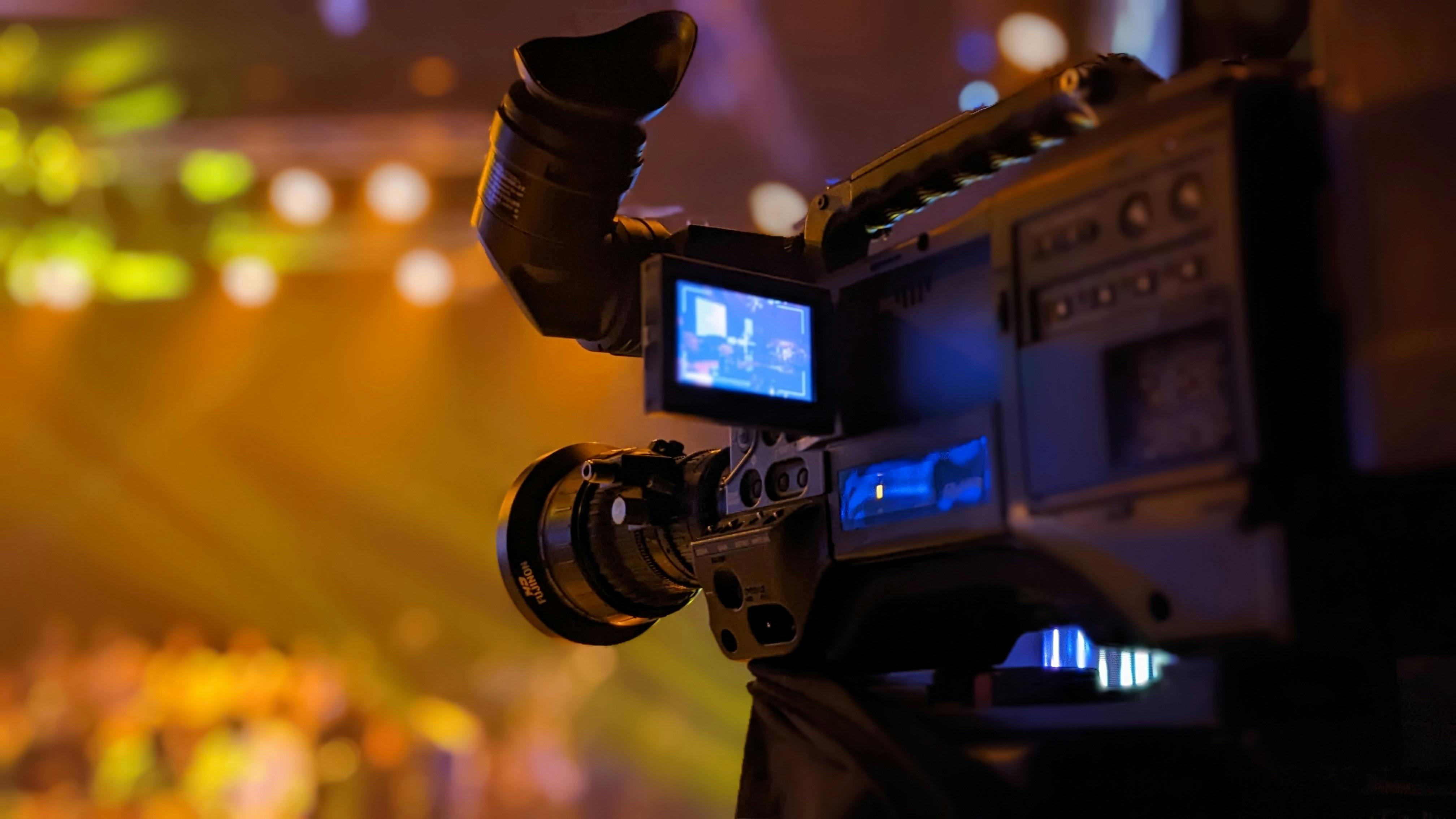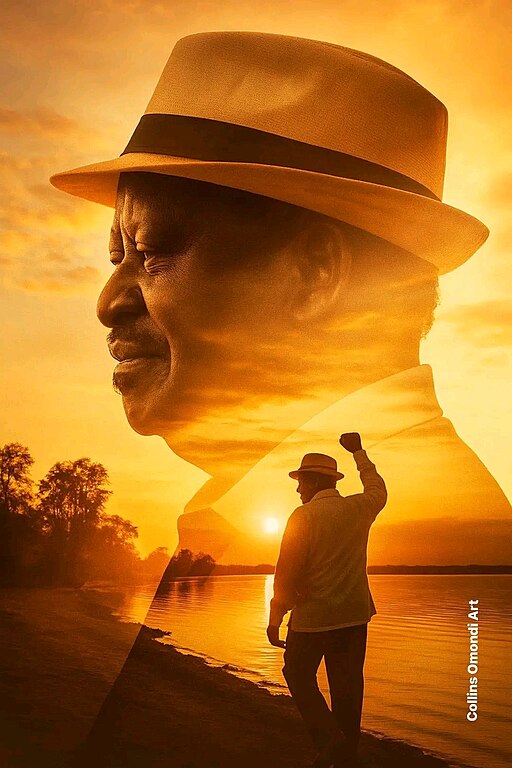Coercive
Scholar Spotlight: Gerald Bareebe
The Elite Africa Project would be nowhere without the work of our talented scholars, whose expertise in their domains is central to our work. In this series, the Elite Africa Project will interview scholars about their work and what they think a deeper study of Africa’s elites can add to our understanding of the continent.
Our first guest is Gerald Bareebe, Assistant Professor of Political Science at York University. His research focuses on conflict and post-conflict reconstruction in Eastern Africa. He has researched and published works on these issues in Uganda, Rwanda, Burundi, South Sudan, Somalia, and the Democratic Republic of Congo. Dr. Bareebe leads Elite Africa’s Coercive Power Domain.
How did you learn about the Elite Africa Project?
This project was actually conceived by Prof. Antoinette Handley. The motivation of the projection is that, when you look at the conventional wisdom of who is an African elite, it’s only negative stereotypes of being corrupt, self-centred, paying bribes, exploiting the poor, etc. All these things are true; I’m certainly not dismissing them. But this is not so different from the top elites in the West or in any society. The focus on the negative qualities of African elites, which certainly exist, means that there’s also a lot that goes on that doesn’t come to the forefront. So the idea for this project was to look at how elites fit into different aspects of African development–socioeconomic, political, religious–and to look at their contributions within the wider spectrum of governance and development in Africa. So when she was putting up the proposal and asked if I would be part of the team, I said “sure.”
How do you define elites?
That’s actually a very good question because there are a lot of conceptions about what makes an elite. But for me, for anyone to qualify as an elite he/she must have some level of influence and must have status in society. Power is the measure of influence in whatever domain it is exercised. If we’re talking about politics, yes, there are politicians, but do they have influence? Do their ideas determine policy direction? You can even talk about musicians, poets or comedians having significant influence and status. I don’t know if you follow the comedy industry in Africa, but it’s picking up in West and East Africa and the power these people have to influence society is amazing.
So there are three conditions for being an elite. First, you must have power to influence society. Second, you must have status within society, and, finally, you must have ideas. And some people have ideas but don’t promote them. Ideas that get realised must come from someone with the willingness and personal drive to promote them.
Look at this African Union Standby Force. This would see components for each of the continent’s regions. If you look at how it emerged, it came from the idea of “why is the West intervening in Africa” and that there must be African capacity to respond to cases of widespread human rights abuses, endemic violence, and political instability. The people who brought this idea to the forefront are African elites–statesmen and non-statesmen.
You’ve given an example of this, but how do we identify elites in the coercive domain? Who are some examples of those with coercive power?
Coercive elites are usually people with military background, people whose decisions can influence the application of violence. These can be serving or retired military officials whose influence and power is noticeable in how coercive institutions function.
If you look at Maj. Fatima Isaacs, she is a major in the South African army who refused to remove her hijab. The army’s policies forbade women from wearing the veil but she pushed and challenged this in courts until this was reversed. She came with an idea for change and was willing to fight for it and now has become a big voice for the rights of women in the South African military. That’s an elite.
There are also elites who are former military officials who are heads of state: President Museveni, Paul Kagame, Saeed Hussein Khalil el-Sisi, etc. These are people who make decisions that determine how violence is applied and also have strong influence in their respective societies.
Museveni and Kagame in particular are among the most important architects of the African Union Standby Force. Their military background as former rebel leaders led them to push for this idea. Museveni pushed for intervention in Somalia, Kagame pushed for intervention in Darfur, and both sent soldiers from their countries into these conflicts. These are elites whose ideas, status, and power allow them to change how coercive power gets deployed. This is very important because we are no longer waiting for the West to intervene in African conflicts. African leaders are making their own independent decisions to use coercive force for purposes of achieving continental peace and stability.
But there are also people without military background who make decisions that influence the military. For example, the African Union’s Peace and Security Council are elites that are institutionalised within the African Union and make decisions resulting in interventions. If you look to West Africa, President Macky Sall of Senegal was able to pressure Yayah Jammeh to step down after his loss in Gambian elections by warning he would call on ECOMOG, West Africa’s regional standby force, to remove him. These are examples of civilians who can influence how force is applied.
There’s been a series of coups in West and Central Africa in the past couple of years. What does this say about the relationship between coercive elites and political power?
From the independence era to the 1980s there were so many coups in Africa, but from the 1990s onwards the number of coups reduced and they became rare by the early 2000s. A lot of scholars thought that Africa had moved away from that period; that it was no longer the case that any disagreement between a civilian government and the military would end with the military overthrowing politicians.
Recent coups in Burkina Faso, Mali, Guinea, Sudan, Zimbabwe, and Chad signify a resurgence of coups in Africa. One of the most convincing explanations to me is declining levels of democracy. None of those countries where a coup has taken place is actually democratic. It might suggest that as levels of democracy decline, people get frustrated and the military claims to embody the views of the population and takes over power with popular citizens’ support. This explains why these coups are being welcomed with jubilation and celebrations from civilians. A more deep analysis of politics in countries where coups have taken place may show that they reflect elite disagreements, especially disagreements between political elites and military elites.
You mentioned this African Union Standby Force, and its goal to make military interventions on the continent less reliant on outside actors. Do you think it’s likely to achieve this goal and what obstacles is it facing?
The problem is that countries are unwilling to contribute armies to the force because they’re not sure who’s going to fund it. Funding is the biggest problem the AU has at this point. The AU needs to have funding capacity to sustain a standby force. On whether the standby force itself is a good idea, I think that the answer is yes. The idea was accelerated by events in Libya, where the African Union was unable to do anything. They sat on the sidelines and watched as NATO bombed Ghaddafi the way they wanted.
Another challenge is that institutions like the AU don’t want to be seen as violating the sovereignty of their member states. Normally they’d prefer to ask member states to contribute on an ad hoc basis. The compromise to get around this is that the forces should be operated regionally. West Africa already has ECOMOG, but Northern Africa, Eastern Africa, Central Africa and Southern Africa are now developing their own standby forces.
Deciding when the force would be deployed is less of an issue. The African Peace and Security Commission is in charge of making decisions on interventions, and there has been a lot of agreement on the necessity of intervention in the past. It’s the funding that remains the main obstacle. There are around 20,000 AU peacekeeping forces in Somalia, but their salaries, food, equipment are all provided by Europe and the United States.
What are you currently working on?
I’m working on a book comparing Uganda and Rwanda. It’s about how these two states, both under the leadership of former rebel leaders, set out to create different types of regimes. I should have this project out in the next few years.
My second project is looking at the rising number of foreign military installations in Africa. China is getting a base in Djibouti to match the US base there. Foreign military posts are in Chad, CAR, Cameroon, Mali, and Kenya. The AU has expressed concern about this, advising member states against accepting foreign bases. I want to examine why there is this big rush to create military bases in Africa, and what this might mean for the sovereignty and future of African countries.
What is your favourite book/article you’ve read recently about coercion or military power in Africa?
I’ll give two. The first is Security Beyond the State by Rita Abrahamsen and Michael. C. William. It was written in 2014 and is a very interesting book. It looks at the growing role of private militaries in Africa. It asks why African countries are relying more on private armies and what this means for sovereignty.
Another is a book I just reviewed in Commonwealth and Contemporary Politics. It’s called Arbitrary States by Rebecca Tabscott. It looks at how states institutionalise arbitrariness as a form of government, and I highly recommend it.
What do you hope comes out of the Elite Africa Project?
Well, there is a lot in academia that we miss. We tend to focus a lot on literature and scholarly work, not so much on policy issues. The majority of work in academia remains in university libraries. The thing I like about Elite Africa is that there’s a policy component of it aside from the normal deliverables of edited volumes and published works. The fact that the project includes academic professionals and policy scholars is exciting, and it’s a combination that comes at an important time for these conversations.
I would, of course, be happy if we had an opportunity to interact with some of the elites we’re talking about through a forum, roundtable, or seminar. I think it would make a lot of sense for this project.







